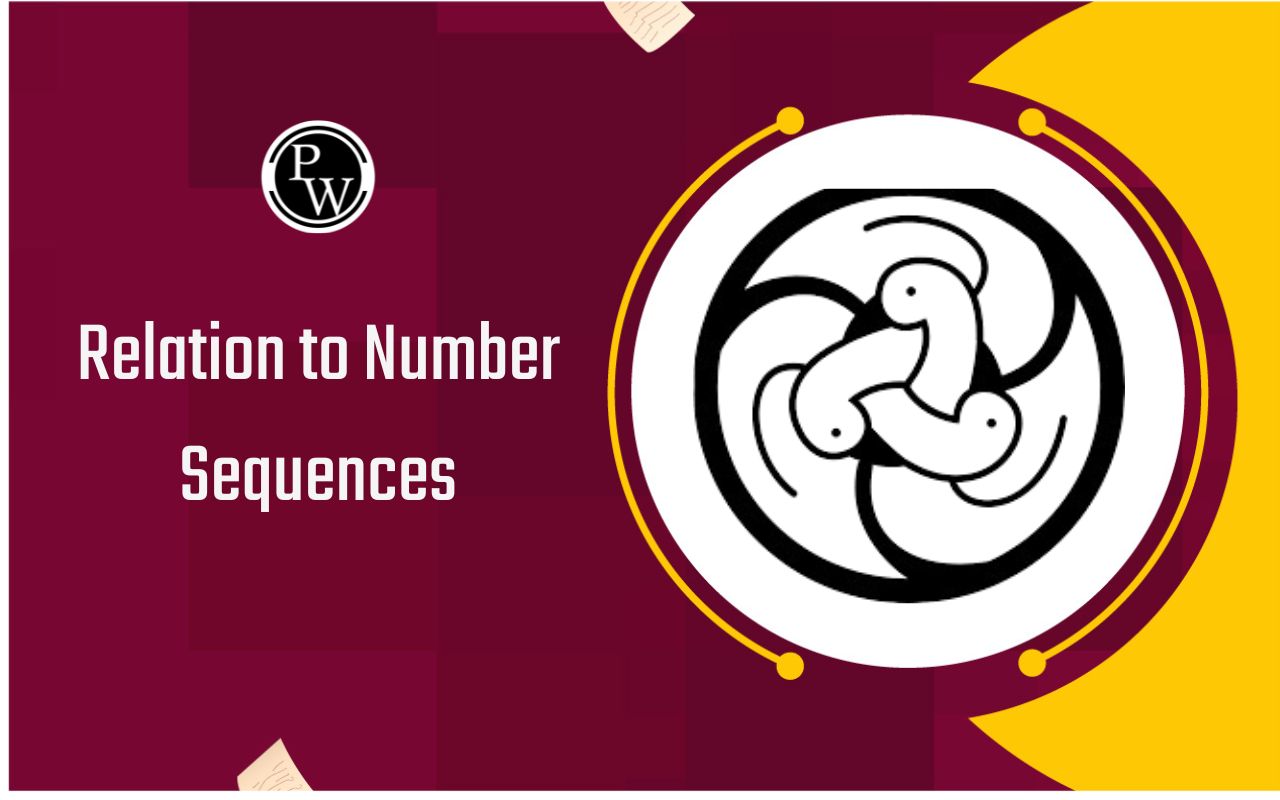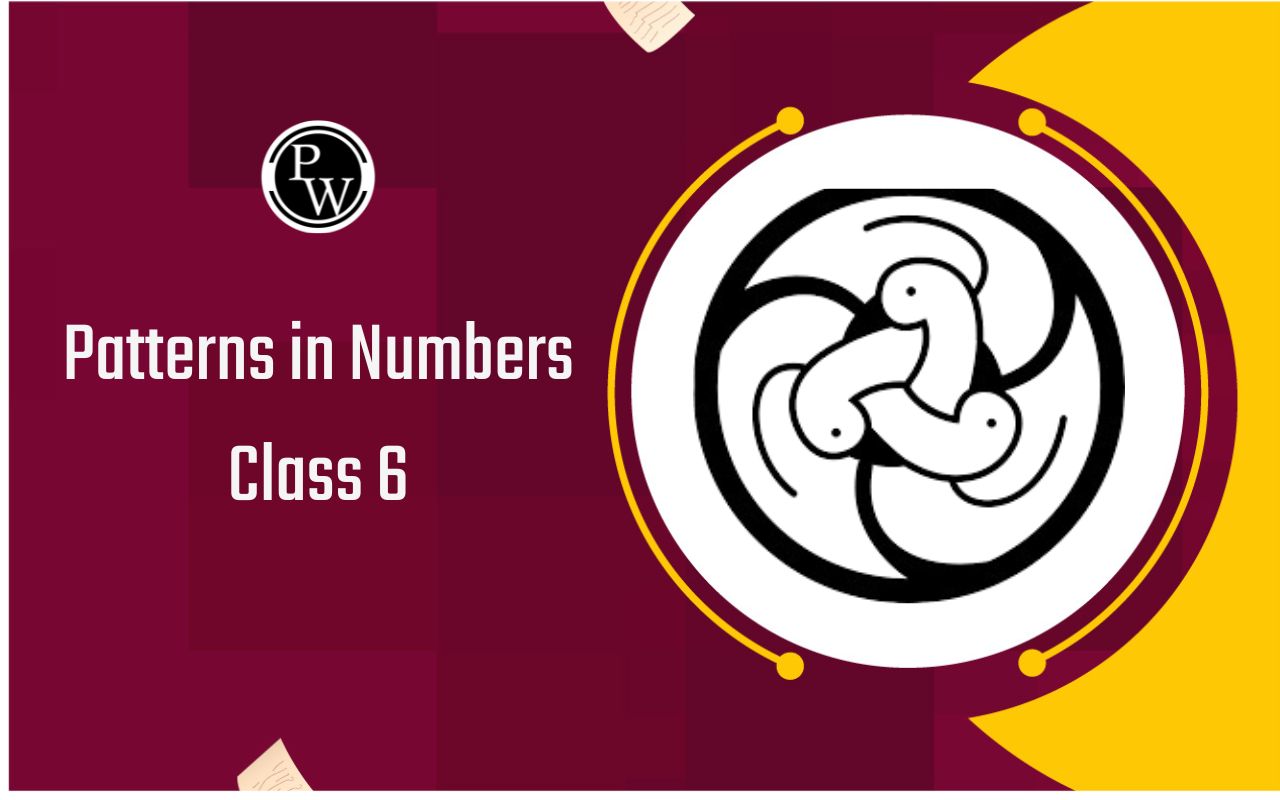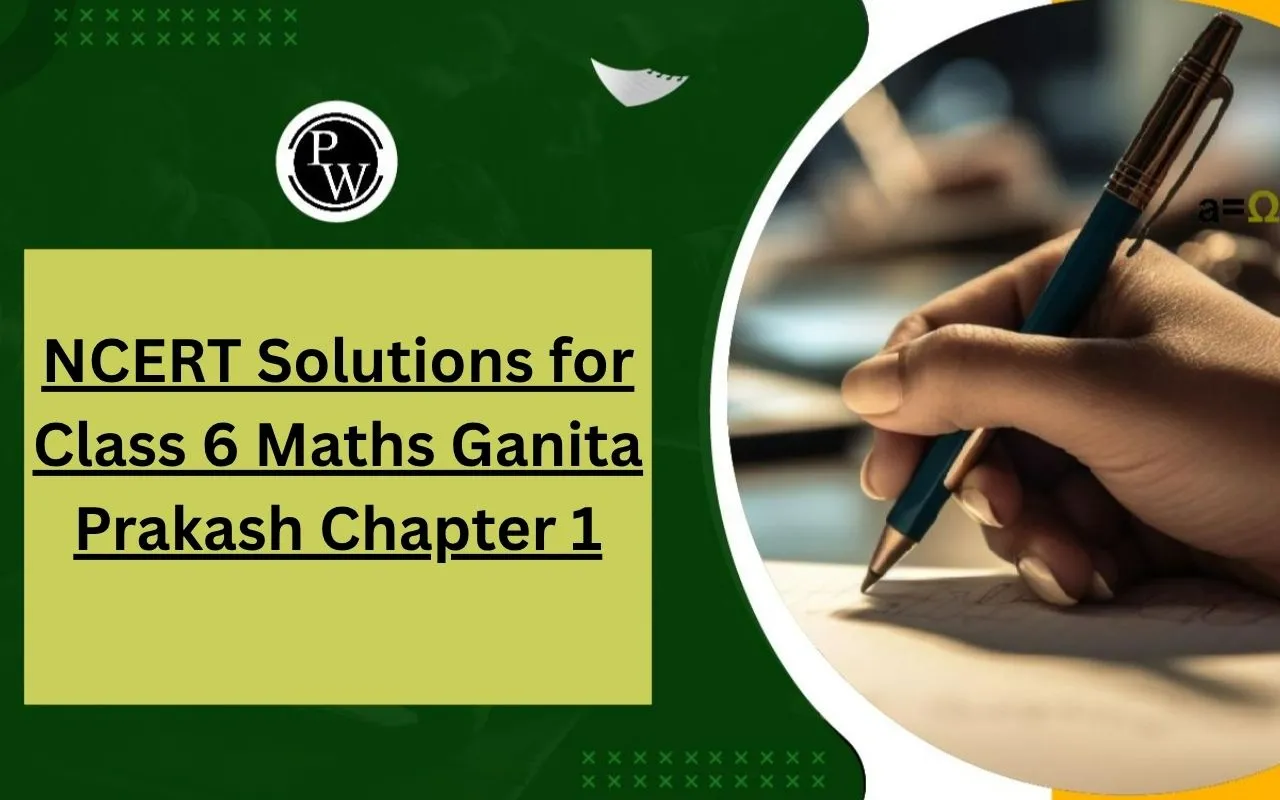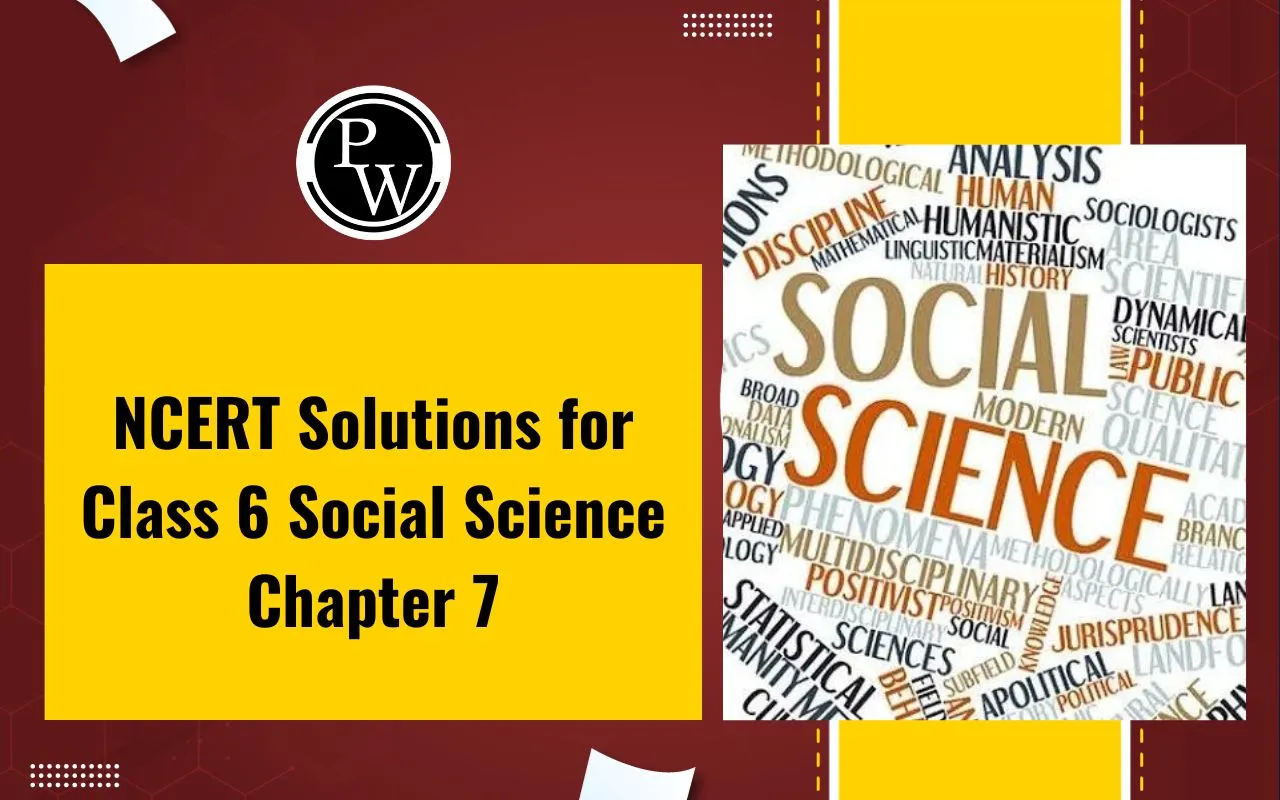
NCERT Solutions for Class 6 Social Science Chapter 9, Family and Community, provide easy-to-understand answers to all the questions in the NCERT Class 6 textbook. These solutions help students learn about the importance of family, different types of families, and how communities support and work together.
The chapter explains family values like love, care, respect, and teamwork through simple examples and stories. With these solutions, students can confidently prepare for exams and understand the social bonds that connect people in families and communities.
NCERT Solutions for Class 6 Social Science Chapter 9 Family and Community
Chapter 9 of Class 6 Social Science, titled Family and Community, explores the basic unit of society, the family and its role in our lives. This chapter helps students understand why families are important, the different types of families that exist, and how family members support and care for each other. It also introduces the idea of a community, which is a larger group of people living or working together, sharing resources, and helping one another.
Through stories and examples, the chapter highlights important family values like love, respect, cooperation, and sharing responsibilities. It encourages students to observe the types of families around them and think about how communities work together to make life better for everyone. Overall, this chapter aims to teach the social bonds and relationships that connect us and build a sense of belonging.
The NCERT Solutions for this chapter provide detailed, easy-to-understand answers that help students grasp these concepts clearly and prepare effectively for their exams.
Family and Community NCERT Solutions Class 6th SST Chapter 9 Question Answer
Here are the solutions for NCERT Class 6 Social Science Chapter 9 Family and Community. These solutions cover all the questions and exercises from the chapter to help students understand the concepts clearly and prepare effectively for exams.
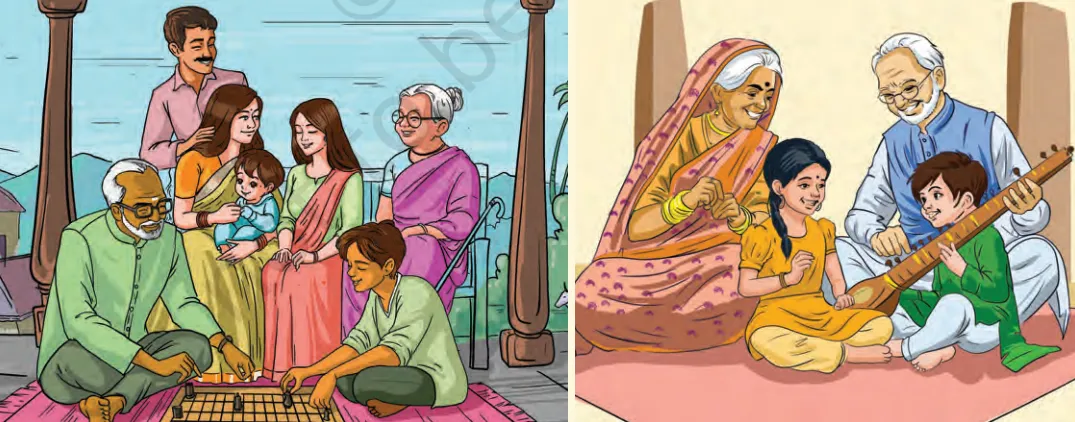
Q1. Why is the family unit important?
A: Family gives love, support, care, teaches values, and helps personal growth and social development.
Q2. What is a community and what is its role?
A: A community is people living together who support each other and share resources to improve life quality.
LET’S EXPLORE
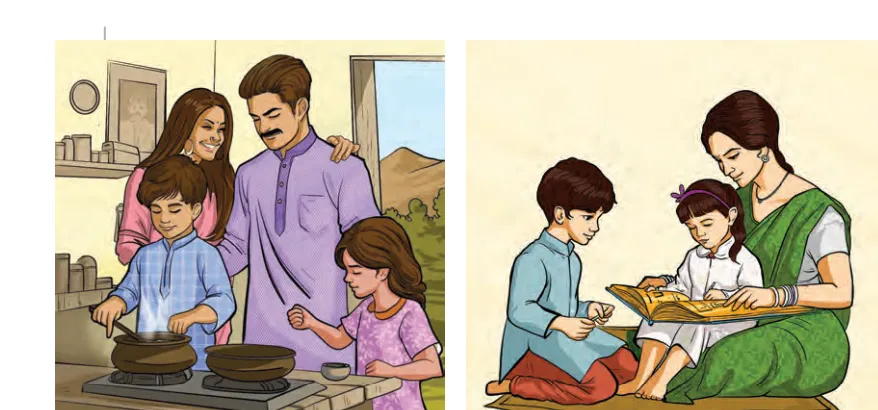
Q1. What types of families do you see in your neighbourhood?
A: Families with both parents, single parents, with grandparents, and extended families including relatives.
Q.2. What types are more frequent? Why do you think this is so?
A: Nuclear families are more frequent. This is because most people work in cities and prefer living in smaller families with just parents and children. Also, space in cities is limited, so small families are easier to manage.
Q.3. As a class activity, compare with your classmates’ findings and discuss.
A: Do IT YOURSELF.
Answer these questions and compare your answers with a few classmates:
Q.4: Who in your family decides what is to be bought from the market?
A: In my family, my parents usually decide what is to be bought from the market.
Q.5. Who cooks food in your home?
Ans: My mother mostly cooks food at home. Sometimes my father also helps.
Q.6. Who is the oldest person in your family?
Ans: My grandfather is the oldest person in my family.
Q.7. Who cleans the floor in your home?
Ans: We have a helper who cleans the floor. Sometimes, my mother also does it.
Q.8. Who washes utensils in your house?
Ans: Our helper washes the utensils, but during holidays, we all help together.
Q.9. Who helps you to do your homework?
Ans: My elder sister and sometimes my father help me with my homework.
LET’S EXPLORE
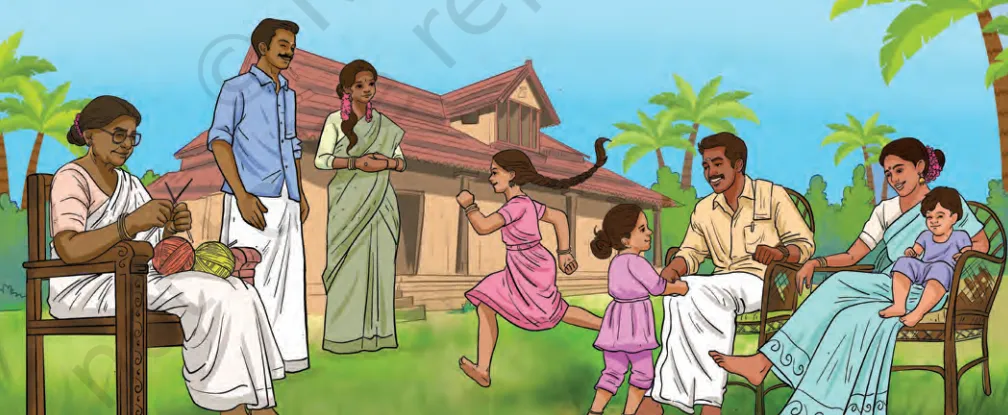
Q.1. Draw a simple tree of this family of seven members.
A: Grandmother
│
┌──────────┴──────────┐
Father Aunt (or Father's Sister/Wife)
│ │
Mother Uncle (or Aunt's Husband)
│
┌─────┴─────┐
Daughter Younger Child
Q2. Why did Shalini’s parents buy clothes for everyone?
A: To show love and care, supporting all family members equally.
Q3: What would you have done if you were in Shalini’s place?
A: If I were in Shalini’s place, I would feel happy and grateful that everyone in my family got new clothes for the festival of Onam. Even if I had to wear a simple cotton cloth instead of a silk one, I would still be content because the important thing is that family members support and care for each other. Seeing everyone happy together is what really matters in a family.
Think About It -
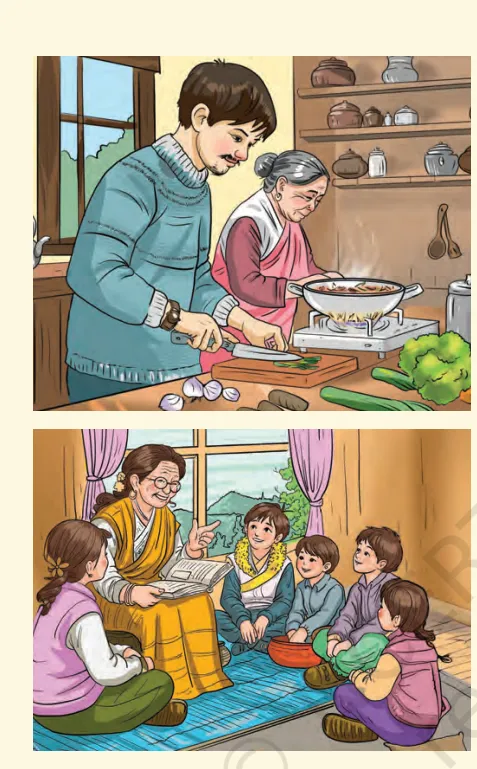
Q1: Why does Tenzing’s father consult his wife for special expenses?
A: Tenzing’s father consults his wife before making special expenses because, in many families, important financial decisions are made together. This shows respect for each other’s opinions and ensures that both partners are involved in managing the household budget. Consulting his wife helps them plan their money wisely and make sure the family’s needs are met responsibly. It also strengthens their partnership by making decisions as a team.
Q.2. How do you feel about his participation in household chores?
A: I feel very happy and inspired by Tenzing’s father's participation in household chores. It shows that all family members should help each other, no matter their role. It makes the family stronger and teaches us that housework is everyone’s responsibility.
Q.3. What roles do the grandparents fulfil?
A: The grandparents in Tenzing’s family play very important roles. His grandmother cooks food, tells stories, and shares wisdom. His grandfather helps with homework, takes him to the bus stop, and helps people in the colony. They are caring, supportive, and active members of the family and community.
LET’S EXPLORE
Q1: Create a story of a family somewhere in India, where family values are practiced.A: Ramesh, his wife Sita, and their children Ravi and Priya lived in a small Indian village with Ramesh’s mother.
A: One day, the grandmother fell ill, and the whole family became worried. Sita took care of her by cooking her favorite meals and giving her medicine. Ravi and Priya helped their mother with household chores. Ramesh worked hard at a construction site to pay for the treatment. When the grandmother recovered, the family sat together, shared a meal, and thanked each other for the support. Ramesh said, “We are strong because we are together.” Sita added, “Family is about helping each other.” Ravi and Priya learned that love, care, respect, teamwork, and gratitude are the key values that keep a family strong.
Questions, Activities And Projects (Page 148)
Q1: What are some rules you follow in your family and neighbourhood? Why are they important?
A: In my family, I follow rules like sharing household chores, respecting elders, waking up and sleeping early, and keeping the house clean. In my neighbourhood, people throw garbage in designated places, avoid unnecessary noise, respect elders, and follow traffic and parking rules. These rules help maintain peace, cleanliness, and good relationships in both family and community.
Q2: Do you think some rules are unfair to a few people in the family or community? Why?
A: Yes, some rules can seem unfair, such as strict curfews for teenagers or uneven distribution of chores. To be fair, rules should consider everyone’s needs and situations so no one feels unfairly treated or overburdened.
Q3: Describe situations where community support makes a difference.
A:
-
Disaster Relief: Communities help during floods or earthquakes by donating, volunteering, and rebuilding homes.
-
Health Crises: During pandemics, people organize food drives, provide masks, and support healthcare workers emotionally.
-
Educational Support: Communities offer tutoring and scholarships to help poor students succeed.
-
Elderly Care: Neighborhoods set up programs to assist and socialize with elderly residents, improving their wellbeing.
NCERT Solutions for Class 6 Social Science Chapter 9 PDF Download
Students can download the NCERT Solutions for Class 6 Social Science Chapter 9 Family and Community in PDF format from the link below.
These solutions are prepared to help students understand the chapter clearly and perform well in exams. The PDF contains all the questions from the textbook along with easy-to-understand and accurate answers, making it a useful resource for study and revision.
NCERT Solutions for Class 6 Social Science Chapter 9
Study without using the internet
Preparation Tips for Class 6 Social Science Chapter 9 Family and Community
-
Begin by reading the entire chapter carefully to understand the importance of family and community in our lives.
-
Note down key points such as the roles of family members, types of families, and how communities support each other.
-
Focus on understanding values like love, care, respect, and teamwork within families and communities.
-
Practice answering all exercise questions at the end of the chapter and try solving sample papers to get comfortable with the exam format.
-
Discuss the chapter topics with friends or in study groups to clarify any doubts and gain different viewpoints.
-
Review your notes and the chapter multiple times before exams to improve retention and confidence.
NCERT Solutions for Class 6 Social Science Chapter 9 FAQs
Why is the family important according to this chapter?
What is the role of a community?
Are there any activities included in this chapter?
How can I prepare effectively using these solutions?



